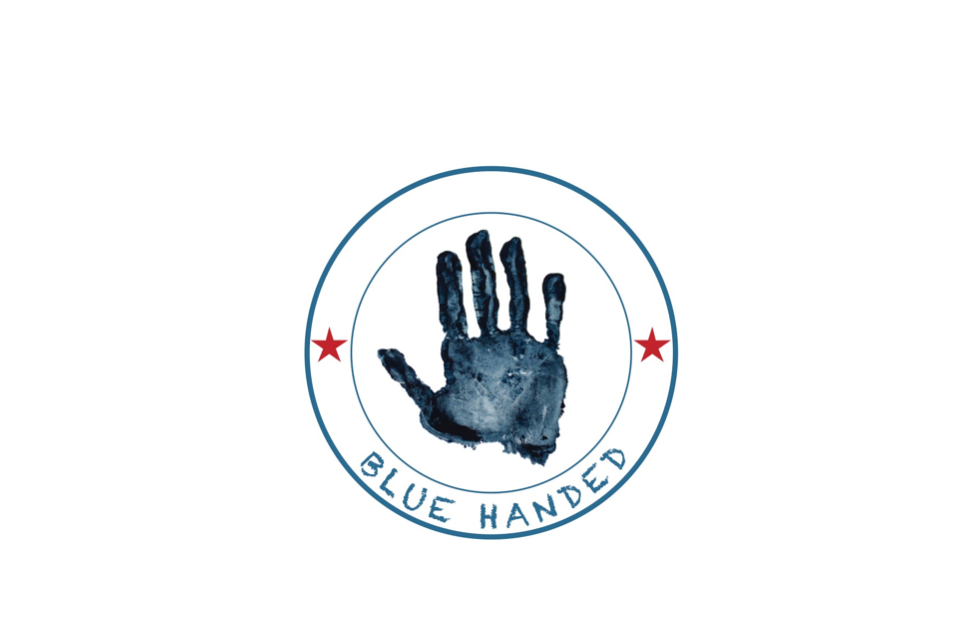Bluehanded participated online at Denim Days Festival 2020 again this year. Was great to join other participants of the event on line and look forward to next year when we can all be together again. The festival is in conjunction with Kingpins Show where the denim industry gathers together to meet, see what is new and interact with the trade and denim lovers.
Bluehanded shared their story of how they discovered the ancient Katazome craft and how they brought it to the west.
“I was rummaging around the demolished Hutong alley towns of Shanghai when I came upon a wrap cloth of blue and white fabric that really grabbed me,” reminisces founder John Abbate. With the help of locals, he identified the cotton cloth as Lan Yin Hua Bu (blue-printed flower cloth), an artisanal indigo textile that is hand-dyed using ancient scrape-paste and resist printing techniques. The fabric is perhaps better known in Japanese as Katazome, though the craft originates in China, where it was established some 800 years ago.
Further investigation led Abbate to a village, 2 hours by bus and then another hour by car from Shanghai, where the fabric is still made today. There he met an Indigo Master a textile artisan so highly skilled he’s been recognised as a “living treasure” by the Chinese government. The Master and his family have worked from a barn next to his house for decades, handcrafting textiles from scratch using natural, locally sourced natural calico cotton and ingredients – from indigo plants to the soybean paste used in the printing process. “I’m incredibly lucky to be working with my Master – he makes all fabrics for Bluehanded, adhering to the labor-intensive tradition yet offering flexibility within his parameters,” explains Abbate, emphasising that he too wants to avoid tampering with the centuries-old method. “My aim with the company is to help preserve the culture around these authentic textiles,” he says. “To me, the combination of natural ingredients and slow production method entirely carried out by hand represents true luxury. I want to inspire designers to discover the fabric’s versatility and sustainability credentials.”
Ways in which Abbate and the Master have been able to update their offerings to suit contemporary use include extending the traditional width of 82cm to 106 cm – this is as far as the arm will stretch when applying the soybean paste in the printing process. The creative pair has also developed lighter shades of indigo than the traditional midnight blue. The quality, longevity and intensity of the indigo is so good that a different formula and dye vat had to be made for these lighter hues. Designers are invited to send their own natural fibre fabric – or even whole garments – to be printed, opting either for one of the Master’s many prints or submitting their own design, which they will cut out using the traditional stencil pattern method. “Recently, Alister Shapley designed a minimal concentric circle-based pattern that worked really well, while Donovan Love sent a bunch of sweatshirts to have printed and dyed – they sold out instantly in his Truman Brewery shop in London,” says Abbate, who’s currently looking for a sales agent to help him introduce the fabric to a larger pool of designers and brands.
If opting for Bluehanded’s 100% cotton, hand-dyed natural indigo fabric by the meter, beside the solid midnight blue and lighter shade, there are some 50 patterns to choose from – from flowers and horses to more graphic variants. Rolls are sold with 7.5 meters of material as this is the max measurement when hanging the textile to dry in the sun. Bluehanded offers small minimums – as little as one roll can be ordered. “The Master and I communicate in straightforward terms,” says John. “I send him a Wechat message (China’s WhatsApp equivalent) with and order and he replies with a thumbs up and off he goes to tend to his craft.”
One has to appreciate these artisanal natural dyed fabrics. Check out the video link to the fabrication process.
The textiles are used for fashion apparel and home such as cushions, bedspreads, headboards, wall covering, window treatment and table linen. For upholstery it can be used on the backs and sides of armchairs and ottomans.
The fabrics you saw in the sample book are made with traditional methods that date back 800 years. The patterns are created with a resist paste technique using natural soybean and rock lime. The ethical and sustainable fabrics use ingredients that are locally grown and sourced.
We have many patterns that can be made to order and we have some limited stock here in London. Lead time is normally only 6 to 8 weeks for any of the patterns with a MOQ of 1 roll (7.5m). We are now also able to produce simple patterns at 110cm wide in addition to our standard 82cm wide, which is the reach that the paste can be normally spread by hand.
As the designs are paper template hand cut you may also design your own exclusive patterns with a small MOQ of 1 roll. All the blue and white patterns come in deep indigo or a light dye shade, especially developed by our Indigo Master. Our indigo is of very high quality, using a natural indigo dyeing vat that has been in continuous use for over 20 years.
We also have a limited selection of vintage indigo fabrics that we usually sell exclusively at the Denim Days Festival in Amsterdam but have put them on line here . https://www.bluehanded.co.uk/index.php/product-category/home-collection/home/
Please do not hesitate to contact John at john@bluehanded.co.uk should you have any questions.
Look forward to helping you offer your clients a unique and artisanal material that can be an alternative to mass production. We are part of the slow fashion and responsible interior design movements.
We thank Denim Days Online Festival 2020 for organising the online event and look forward to next years!


